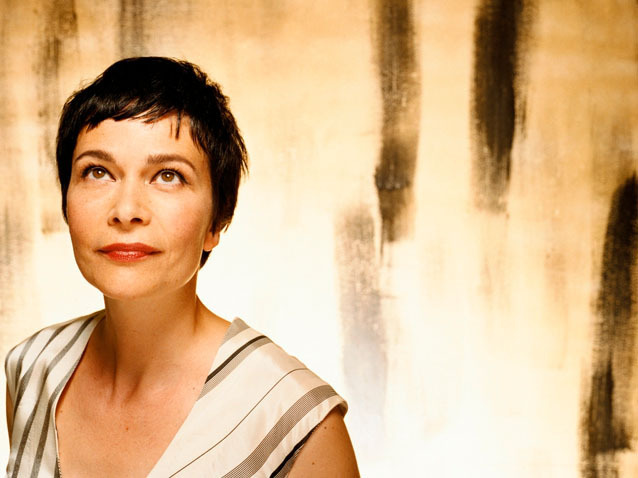 © DR
© DR
The story of Baroquists in France is first and foremost a story about conductors, at least with regard to the mediatisation of this new movement, and these conductors were naturally able to take advantage of the irreplaceable coverage which their access to opera gave them - the famous Atys of 1987 conducted by William Christie is the best-known example of this. But that required singers: a whole generation would come out of this, and would often be reproached (so often that it was at least in part clearly unfair) for being only little voices, with no influence and no impact. Sandrine Piau is not entirely part of the generation of pioneers, but she is perhaps the first one able to combine the rigour essential for discoveries with all the qualities that make a great singer, regardless of repertoire.
In this panorama of passionate young people, Sandrine Piau was privileged to have the virtuosity that many arias by Handle and Rameau require of their performers. The vocal exercises are there, precise in intonation and rhythm, and the breath control never disturbs her impeccable phrasing, but with Sandrine Piau you never really have the time to admire the technical performance: many “baroquist” singers today, with impeccable technical skills, would do well to take her as a model in terms of the art of arousing emotion through the simple miracle of her phrasing. You have to listen to her sing Pamina’s aria, so unvirtuoso yet the most difficult of all Mozart’s arias in terms of its expressive simplicity: through the rigour of the line, with delicate nuances of colour, she brings an emotion to this aria that is usually expected but seldom achieved.
Hendel meeting Sandrine Piau is a major event, not just in terms of the number of concerts, operas and recordings that have brought them together: of course the format is ideal for this, as the smaller orchestra does not require excessive vocal strength, and the music is played not in former train stations converted to opera halls, but the match is deeper than that. With Handel, however formal his musical dramaturgy may at first appear, the singer who merely sings notes will put the audience to sleep. What Sandrine Piau is able to do as a person, beyond the little variations expected in each aria’s da capo, is to build, throughout the entire aria, lasing 10 minutes sometimes, an emotional journey that is always dramatically relevant. In a sad aria (take for example “Cor di padre” from Tamerlano!), she lets us hear a thousand variations on that sadness, the lucidity of the suffering man, the illusory lulls, the torments. No great outbursts, no overacting: emotion in its intimate truth.
After a quarter of a century of performing, Sandrine Piau finds herself with a well-stocked discography, with opera first of all, but also with a fine series of always very personal recitals, with the help of a faithful publisher, Naïve. The baroque predominates, but other aspects of her repertoire are also represented, starting with French melody, the big names as well as composers heard less often in concert: the intimate format of her voice predestines her voice to this, like the almost old-fashioned care she has always taken with her diction, whatever the language. Yet even this generous discography does not give us a full idea of her repertoire: she has been seen on stage in Dialogues des carmélites, as Ännchen in Freischütz, as Tytania in Britten’s Midsummer Night’s Dream, as Mélisande, and even in Offenbach, with delightful humour when required. For Sandrine Piau, who was a harpist before she became a singer, it’s the musicality that counts above all else: this is an invaluable advantage in rediscovering new repertories, but it is a precious resource in all repertories, and no “nature” or energy boost can make up for that. Her musicality - and this may be what makes her so irreplaceable - is supported by a profound understanding of the music and its words: we read this in her interviews, but we also hear it in her singing. This involves a stylistic effort that enables her to get into the spirit of an era, into the mind of the composer, into the taste of an era. In the 18th century taste was an essential concept that prohibited both too much and too little, combining a sense of proportion with the liveliness of the feelings. This would make a fair definition of the art of Sandrine Piau, as intelligent and subtle as it is warmly sensual.
Dominique Adrian
the 28 of June, 2016 | Print

Comments